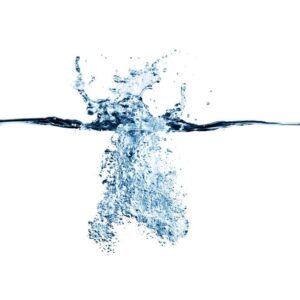Words of Reflection – contemplating the poetic verses of a Sufi gnostic in modern day terminology. A humble response to a very deep statement, written in response to one who asked for some sort of cognizant elaboration.
The short poem expresses the beauty embedded in poetry, as it dives into the world of symbolism and imagery. Poetry that also speaks in terms of relativity, i.e. it will always deepen based on your own very personal experience.
Reminded once again, that we see, understand, and speak through the lens of our own limited perception. May we expand in consciousness to see, understand, and speak directly from the heart of Truth.
The Poetry Verse of the controversial mystic Al-Hallaj, reflection on meaning
كن لي كما كنت لي
في حين لم أكن
يا من به صرت بين
الرزء والحزن
– الحلاج

A rough Google translated modified version:
Be to me as you are were to me
When I was not (existent)
O You who I became (situated) between
Sorrow and sadness
- Hallaj
Unity, in the world of perceived duality
Al-Hajj’s words paint (one) understanding summed as two-fold:
the nature of Unity as a field of Love, an interwoven connectedness to an all-encompassing energy field of Love (often described as nothingness itself); and, the nature of Dunya (the lowest of the worlds) in its hardships and dis-ease.
An expansive hopeful energy is carried in the words, almost as if it is to say that in every experience, there exists another possibility in how the experience is experienced. Hope is an act of the will.
There is a relationship between the two (the world of the unseen and the corporeal world) that allows the possibility of peace to exist in the inner realm no matter how turbulent it is ‘out there’.
The answer to Al-Hajj’s silent outcry is figuratively synonymous to inner healing. Or, stated differently, healing back into wholeness and awakening out of the pain of separation into the gentle hands of unity. The imagery of a wave can serve as a very deep analogy. Each wave is a singular expression of a unified body of water — the ocean. And even if it appears as just a wave, momentarily forgetting its part in that vastness of an ocean landscape, it is bound to return to the state of nothingness from which it had emerged from into form. The wave is simply an expression that arises out of the majesty and beauty of an ocean, yet is still a part of the whole. To take this analogy further: Waves can be gently carried onto shore, or violently crash onto shorelines before returning to where they came from. Strong inference to a Hadith Qudsi moves invisibly between the literal words: I was a Hidden treasure, and I longed to be known, so I created the world in order to be known. This is to mean all of Creation, inclusive of mankind.
کنت کنزاً مخفیاً فأحببت أن أعرف فخلقت الخلق لکی أعرف
Gnostics affirm: “He who knows himself knows his Lord”. من عرف نفسه فقد عرف ربه and, remind us to “Die before you die” موتوا قبل ان تموتوا
Born out of the breath of the All-Merciful
From the breath of the All-Merciful, all things are born. Ibn Arabi (known as Sheikh Al Akbar) terms this as a “non-existent possible thing”. You, in ‘nothingness’ , existed as a possibility. His desire for you is what brought you into Is-ness. But there is only One true “Being”, Al-Hayy, Al-Qayyum. This is very deep. All spiritual teachings point to this one singular truth.
You were born into existence out of love. The desire of bringing you into existence from a state of non-being is what brought you into existence to begin with. “Kun, fa-ya-kun”. You are a unique expression of His ocean of love and His love for you.
The only way to know Allah SWT is to ‘know’ your non-existence. He teaches us His names to witness the manifestation of His infinite qualities in Creation. When we come to observe the vastness and perfection of the Creation (waves of Jamal and Jalal), we will begin to see the imperfection and limitedness of the qualities manifested in us. In this we bathe ourselves in humility, as we come to know our nothingness and (come to terms with) our total need for Him.
كن لي كما كنت لي
في حين لم أكن

Forgive this one as a major disservice would be done if nothing was said about the nature of our ego before commenting further. The stronger the attachment of the ego to it’s false-sense of identity, the greater the resistance. This applies to all situations in life, including, what the ego perceives as a ‘threat’ to its own existence. So for peace to descend, we must break free from illusion. Suffering, all forms of ‘suffering’, can be simplified as pain plus resistance. Even what can be experienced as resistance to resistance itself.
One of the basic and fundamental truths of all spiritual teachings is “All is One”. This is also at the core of monotheism, the matter of Tawhid. And although we are all born knowing, we traverse into this world, forgetting who we are and where we came from. We identify with a false sense of identity, and our ego perceiving itself as separate. In simple terms, our ego’s identification is an isolated “I am”.
Love disarms and integrates the ego. This may not fully make sense right now. That is okay. May your heart be open to receive and may you receive what is right for you at this given point in time. Always remember, Truth already resides within you and its’ resonance will make itself known into conscious awareness in its respective time. You are born knowing. We all are. But this knowing becomes veiled as we experience the dualistic nature of this ‘lowest of worlds’. Sufi teaching’s speak of 70,000 veils of light and darkness. Gnostics transmit such knowledge through revelation and “tasting”. For those who of us who have not stepped into such terrain, it is an invitation to go surrender, fully, and allows ourselves to go deep within.
This is why surrender is so important and fundamentally transformative. It’s not about the annihilation of the ego per say, but an integration. A returning back into a state of wholeness.
It allows any form of pain, mental, emotional, physical etc. (embedded in the very nature of our experience in this Dunya) to flow in, through, and out of you.
Al-Hajj’s second verse, in his expression of poetry as an intimate conversation with God, asking to be engulfed by His all-encompassing field of love, alludes to this merciful transformative love that can very much be actualized, even in the depth of tribulation.
The Qu’ran informs us that “We have assuredly created human (in a life of) trial and hardship” (90:4)
لَقَدْ خَلَقْنَا الْإِنْسَانَ فِي كَبَدٍ
The nature of the heart is taqallub, fluctuation, from the same root of the word qalb. When we are reminded that believers are gently held by the two fingers of the All-Merciful, deeply discussed in Ibn Arabi’s work in context of a Hadith, it creates a shift in perspective. Shifting our perspective allows us to experience reality differently. The deepest states of despair, pain, longing, agony, etc. come from Him and are removed by Him. In the midst of all trials and tribulation, one can still experience deep tranquility (sakina) in the heart. That’s a gift of Grace and Benevolence realized by Love. Merging of the state as described in verse two into the state described in verse one.
Born out of Love

If it was not for His love for you, you would not ‘exist’. Al-Hajj’s first lines point to that infinite ocean of Mercy and Love. (And if it was not for His love for you, you would not be reading these words.) Even those who traverse the path of seeking the Truth, it would not be possible if He did not first seek you. Al-Awwal, Al-Akhir, Al-Zahir, Al-Batin. Much can be said by saying very little. Everything is from God, and yet is not God. A concept Ibn Arabi discusses as He/Not He. He is the first and the last, before the before and after the after. He is the outer and manifest, and the inner and most hidden. We exist from, in, and through God. These are concepts that the intellect alone cannot understand. The mystical path of all traditions understand this and a core foundation of their road to truth is a form of ‘practice’.
Dhikr and transcendence
Dhikr, in Sufism, carries the wave back into the nothingness from which it came from. Sufi teachings (particularly poetry as a form of expression) will often talk in context of the Lover and the Beloved. Sufi circles are often described as Lovers of God. I mention this as it may help unfold some of the meanings within the verses shared, upon their revisit.
Ibn Arabi says, “True love of God will never be actualized until the spell of reason is broken and separation is overcome”.
The witnessing of thoughts, feelings, emotions, experiencing energy/movement even in the depth of stillness, and building focused concentration allows one to “be in this world, but not of this world”. Vocal Dhikr vibrates with our entire being through the sound code and penetrates and heals the deepest most wounded parts of us. Silent Dhikr opens the doors to His secret. The process of purification is one of letting go of our attachments to the world/Creation and false identification — and there is no veil between you and Allah in La Ilaha Ila Allah. Murrakaba and Muhasaba are core principles in this walking. Establishing congruency between the heart and the intellect. They are also integral to any spiritual path because they pave the road to ‘enlightenment’ or ‘liberation’. Presence, is, all that is.
A journey of self-love
The journey toward inner-knowing is often a journey of healing and self-love. That is one of the deeper realizations of true repentance. We were created in the Divine Image. We seek forgiveness, our ‘tawba’, first and foremost in recognizing our own shortcomings. And what I mean by this, is, we fall short from our ability to act from our Higher Self, the standpoint of our Highest Integrity. The part of us that knows better. We repent and allow the energy of forgiveness to transform us. Interlinked, the ego experiences itself as isolated. The ego thinks it is doing everything on its own. But that is far from the truth. You are never alone. And you are not the doer. One of the first steps we take in repentance is recognizing this as a defense mechanism of the ego, and for many of us, learning to love ourselves, as only we can truly provide that deepest part of ourselves the love and support it needs (a whole different conversation here) and a returning to At-Tawwab, Al-Ghafur, Al-Rahim. That is why self-love, and self-forgiveness, is paramount. Love, mercy, forgiveness, all virtues longed for by the deepest part of ourselves must first be actualized within. We walk to become, God-willing, a Living Qur’an as exemplified by the Prophet PBUH. We must first learn to give (love, mercy, forgiveness etc.) to ourselves, in opening ourselves to receive His love, and subsequently, being in a position to adequately experience living and giving to others (with no alternative motive behind our actions). Relinquishing our need to be fulfilled by anything other than Him.
Put in a different way, knowing Presence allows for transcendence. How deeply are we rooted in the moment? Do we identify ourselves as our thoughts? What happens if you don’t engage with your thoughts? Who is it that looks behind these thoughts? Am I willing to explore what it means to return to ‘nothingness’ while I am still in this world and if not, what part(s) of me hesitate to do so? Questions that kindle and brighten the fire of certainty within.
I pray your heart receives what it needs and these words foster a depth of understanding. May you be blessed x.
